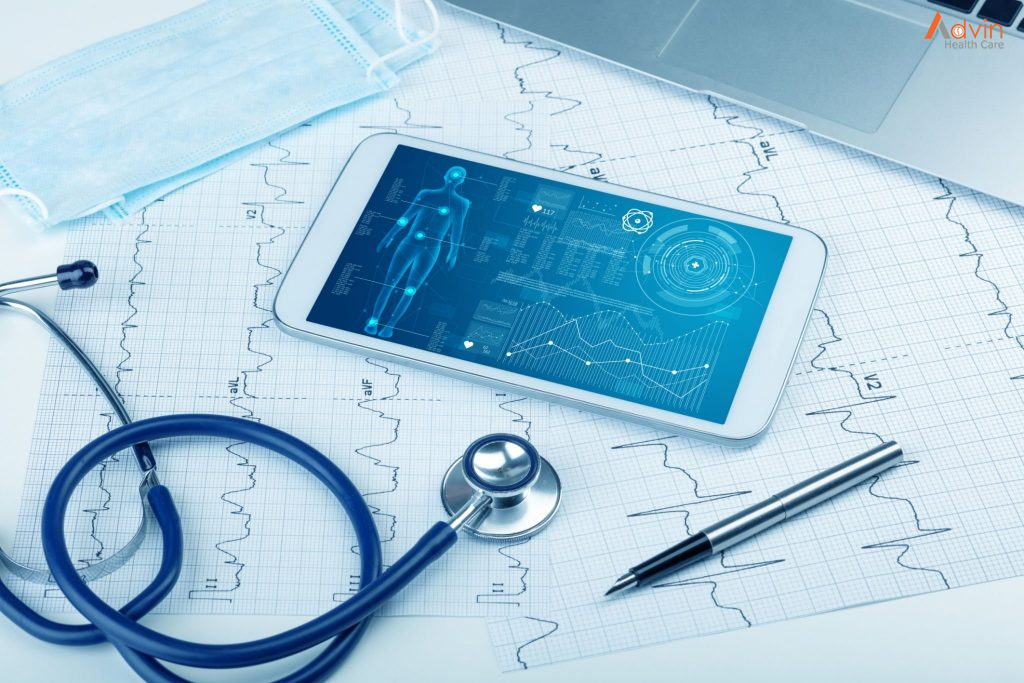With digital technology becoming the norm of daily life, it’s not surprising to see it make its way into the healthcare industry. Digital technology is being used in hospitals to help patients interact with doctors. Many hospitals have already implemented electronic health records, so any healthcare professional can access the information anywhere at any time, such as the hospital, doctor’s offices, patients’ homes, etc.
What Is A Smart Hospital?
There are three crucial layers that will help improve the quality of care – data, insight and access security entities. A smart hospital would make it easier to interact with patients, but the challenge to bringing this technology “to life” is how we can implement into existing hospitals. Because the infrastructure is aging, and IT systems are piecemealed over a number of years, making integration difficult.
A smart hospital is one equipped with a digital brain (artificial intelligence) that meets the needs of all the patients. Movies such as IRobot, Resident Evil and others touch on smart buildings. But instead of focusing on the “evil” aspects of these buildings, focus on what a smart hospital could do.
For example, the building recognizes you have a broken leg and sets up appointments with the right medical team and helps with the readying of the equipment, medical supplies and treatment room. From there, it tells you when your appointment is with the staff.
If a smart hospital is to be developed, the building must be changed to handle the Internet of Things (IoT) so that physical objects can be combined with digital technology. A central digital platform is the only way all these can be successfully combined to create a smart hospital.
This is attainable through a human-developed design based on works in hospitals and what could be better. Looking at various hospital surveys, people who feel like they’re heard or get a response to their concerns are much happier about the experience.
Developing a digital strategy that combines an array of building, medical and operational systems while also allowing patient access to much-needed information on various devices isn’t easy.
Benefits Of A Smart Hospital Management System
Improve patient satisfaction.

Mobile applications from a bedside tablet can be tied into the building management system to give patients control over their own room temperature and lighting, as well as the ability to call the nurse, view noise levels, and control their smart TV.
Improved Diagnosis and Treatment
The primary benefit of a smart hospital management system is that it improves patient diagnosis and treatment. The patient’s health report and medical history from the past to the present, as well as the illness he is suffering from and the care he received, can all be added to and accessed via the HMS. Using this knowledge, doctors can better assess patients’ health problems, ultimately empowering them to provide the best care possible.
Availability of Information At Fingertips
The hospital’s data enables you to track and monitor various events to improve your approach and set performance targets. With a smart hospital management system, you will have all of the details you need at your fingertips, including the patient’s medical history, inventory, finance, workforce, and more. You can use this knowledge to figure out what flaws there are in the system or in which department and how to fix them. The information also aids you in developing a long-term strategy for your healthcare facility.
Reduce Unnecessary Expenses

When all of the hospital’s operations are handled manually, there is a high risk of information leakage and irregularities. Because, as humans, we are prone to making mistakes. These errors will have serious consequences in the long run. However, with the aid of a smart hospital management system, you can easily control all of the hospital’s operations, even with fewer human resources. Moreover, this will also limit human interference in the system, resulting in lower operational costs and less leakage.
Enhance productivity.
A digital infrastructure utilizes forward thinking network connectivity to enhance wireless communication and transfer of digital data such as electronic medical records and digital imaging. Being able to access patient information remotely through smartphones and tablets enables hospital staff to react efficiently and quickly, improving not on productivity, but also patient care.
Protect them like they are your own.
With a digital, intelligent infrastructure, hospital security teams can integrate video surveillance, access control, intercom, intruder detection, fire safety, RTLS, among other security systems to provide real-time data and alarms. In addition, in the event a security incident occurs, actionable reports with traceability are available for forensic analysis.
Increased Data Protection
Another significant advantage of hospital management systems is improved data protection. Since everything is done through a secure system, only authorized individuals have access to the specific data collection. Furthermore, in a cloud-based hospital management system, everything is interconnected, ensuring that there are no risks of data loss and that the patients’ medical history or condition information remains completely protected.
Real-time Data Access

Since a smart hospital management system is a centralized system, doctors, administrative personnel, and other employees can access data in real-time, enabling them to make the best decisions possible. For example, the real-time data about the inventory will assist management in replenishing and updating the inventory. Similarly, the real-time data about the patient’s treatment will assist doctors in making clinical decisions with no room for error or ambiguity.


